Writing at East Asia Forum, Tokyo University’s Takatoshi Ito argues that China’s housing bubble is worse than what’s being let on and that the measures Chinese authorities are taking will not be adequate for a soft landing. In particular, he traces China’s resistance to allowing the yuan to appreciate to a misreading by Chinese authorities of Japan’s “lost decade”: Many Chinese officials tell us that they believe the origin of Japan’s stagnation for the 20 years after its [1980s] housing bubble burst lies in its failure to stand up to US pressure for the yen to appreciate . . . […]
Asia-Pacific Archive
Free Newsletter
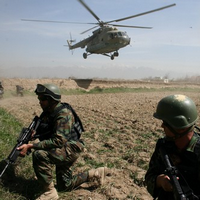
BAGRAM, Afghanistan — The two Russian-made helicopters swooped low over the village of Mahageer, pushing a stinging swirl of dust over the vineyards and pastures. The Mi-17 transports from the Afghan National Army Air Corps’ Kabul Wing touched down in close formation, their rotors just yards apart. Squads of Afghan National Army commandos leaped from the choppers and fanned out, aiming their M-16 rifles. With the perimeter secure, the commandos pulled cardboard boxes from the helicopters. When their holds were empty, the Mi-17s lifted off, blasting the fields with a fresh wave of grit. Last week’s Afghan air assault had […]
Secretary of State Hilary Rodham Clinton opened the U.S.-Pakistan Strategic Dialogue by focusing on the heightening and strengthening of a relationship that has been flawed in the past. Clinton says attendees should come to consider security issues in a broad sense, directly addressing Pakistan’s military attendees. Foreign Minister Qureshi followed Clinton’s statements by highlighting the areas in which the two powers must work together and briefly reviewing the history of diplomatic relations between the two nations.
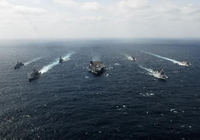
The government of South Korean President Lee Myung-bak has adopted the catchphrase “Global Korea” to signify its desire to play a more assertive role as a contributor to the international community. The same aspiration is reflected in South Korea’s emerging approach to global security issues as reflected in its 2008 Defense White Paper (.pdf), which states that in addition to maintaining stability on the Korean peninsula and building the foundations for national security and prosperity, a core national security objective is “enhancing competence and status internationally.” This widening outlook is particularly striking to those who are accustomed to Korea’s longstanding […]
Special Representative for Afghanistan and Pakistan Holbrooke briefs the press on the upcoming U.S.-Pakistan Strategic Dialogue. Holbrooke announces the impressive Pakistan and U.S. delegations that will be present at the talks and emphasizes that though security is always a priority, these substantive discussions will also encompass other priorities such as the Pakistani economy and energy goals.
Simmering tensions along Cambodia’s border with Thailand has prompted Prime Minister Hun Sen to deploy a series of new initiatives to bolster his country’s military. The moves range from an old-fashioned show of muscle in the form of missile tests and military exercises, to corporate sponsorship of the armed forces that has angered humanitarian groups and non-governmental organizations (NGOs). Analysts said the moves can be traced to the periodic border clashes between Thai and Cambodian troops near the ruins of the 11th-century temple, Preah Vihear, where a military standoff has resulted in occasional bloodshed since mid-2008. Hun Sen declared that […]
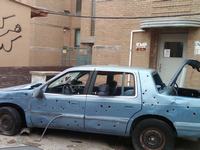
For close to a decade now I’ve been roaming the world, delivering in Johnny Appleseed fashion a message that I refined just after 9/11 for the secretary of defense’s Office of Force Transformation: The world’s core powers must develop a systemic approach to postwar and post-disaster coalition interventions inside what I call the “Non-Integrated Gap,” by which I mean those countries and regions least connected to globalization. This vision encompasses the so-called “whole of government” approach, but extends it vigorously to also include the private sector, based on the knowledge that jobs are the only exit strategy. In short, when […]
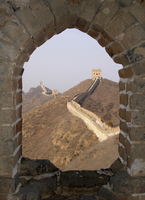
This past Monday, China’s highest governmental legislative body, the National People’s Congress (NPC), wrapped up its annual meetings in Beijing. While these meetings are mostly considered to be rubber-stamp assemblies, they can reveal something of the Chinese Communist Party leadership’s policy priorities, as well as some of the various interest groups within the party. And as the statements and declarations emerging from this year’s meetings make clear, the party leadership has identified consolidating the institutional move toward “inner-party democracy” as the key to curbing corruption and preventing concentration of power at the local levels of government. This “democratic centralism” takes […]
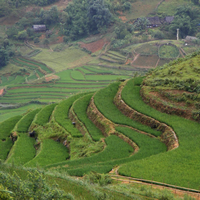
Food prices in Asia continue to be above what they were prior to the 2007-2008 surge. Worse, there are signs that they may increase once again owing to the existence of similar conditions, such as excess demand and rising input prices due to the increasing cost of oil. Presently, rising food prices are leading to the region’s major economies re-orienting their food management policies — a step that is likely to be the harbinger of a tougher stance by the region on the Doha Round of trade talks as well as on climate change issues. The major rice-exporting countries of […]
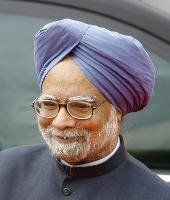
NEW DELHI — Last month, suicide bombers attacked hotels and guesthouses in Kabul, killing 18 people and injuring 35 more, with most of the victims Indians. India immediately rushed National Security Adviser Shiv Shankar Menon to the Afghan capital for a first-hand assessment of security arrangements for the roughly 4,000 Indians working on various aid and development projects in Afghanistan. The bombing is the latest in a string of attacks, the most high-profile of which remains the July 2008 bombing of the Indian Embassy in Kabul, which left 58 people dead. As a result, India has strengthened its Afghan policy […]
Child labor remains one of the world’s most persistent human rights problems, pitting rights advocates, governments and companies against tradition, the needs of impoverished families and criminal groups. Over the last few decades, rights advocates have pressured governments and private-sector actors to crack down on child labor. Individual companies and industries have responded to the calls with various measures, including enacting codes of conduct and severing ties with suppliers. Two recent stories demonstrate the strength and weaknesses of the existing strategies. Apple recently reported that audits of its supplier factories turned up violations of labor laws and the company’s internal […]
The U.S. and EU are bitterly divided over hedge fund regulations that the U.S. calls protectionist. (It turns out the EU is bitterly divided over the regulations, too, but let’s set that aside for now, in order to facilitate my argument.) Meanwhile, the EU is bitterly protesting the U.S. Air Force tanker contract debacle, which it says illustrates U.S. hypocrisy on said protectionism. And all this is taking place in the context of longstanding EU complaints that the U.S. has deliberately allowed the dollar to slide, to the detriment of euro-zone exporters. (Again, let’s set aside the euro’s recent tumble […]
I’ve written before about what happens when sporting events and international relations collide. This morning, I ran across two articles that examine what might best be described as the underbelly of the global sports-industrial complex. One, in Der Spiegel, takes a look at the mixed impact that global demand for soccer balls has on the hand-stitchers of a Pakistani village that produces 40 million of them a year. That number goes up to 60 million during World Cup years. The other, by IRIN via AllAfrica.com, discusses an Ethiopian government report that found that human traffickers are using promises of a […]
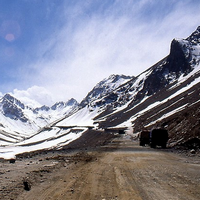
BAGRAM, Afghanistan — Gov. Abdul Basir Salangi grew worried as the snow fell heavily in Afghanistan’s Parwan province on Feb. 8. Every day, some 14,000 cars, trucks and buses pass through Parwan’s Salang Pass — a system of winding roads and tunnels cutting through and over the Hindu Kush Mountains into northern Afghanistan. The snow could strand motorists, or even trap them in tunnels. In 1982, hundreds of people died when Soviet military convoys collided inside one of the tunnels. Vehicles idling behind the accident site filled the tunnel with carbon monoxide, suffocating the people inside. Salangi grabbed some security […]
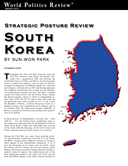
Throughout the 19th and 20th centuries, until the Cold War structure took shape, the Korean Peninsula was a geopolitical fault line between the continental forces of China and Russia and the maritime forces of Japan and America, and an arena in which a struggle for expansion of influence played out. Upon the end of Japan’s colonial rule in 1945, the Korean peninsula was suddenly transformed into a stage for the ideological confrontation between the East and West, centered around the United States and the Soviet Union, despite the Korean people’s desire to build an independent nation. Since 1948, the 85,270 […]
Worldfocus’ Daljit Dhaliwal interviews Michael Kulma of the Asia Society on China’s stance toward the West. After some tough talk by Premier Wen Jiabao at the annual meeting of China’s parliament, some have speculated that Beijing’s stance is once again hardening toward the West. Kulma argues that relations with the West, particularly the United States, have always moved in a cyclical pattern and perhaps now may just be a low point in relations that will inevitably improve.
China’s Southeast Asian neighbors are engaging in a sustained military buildup, with their imports of major conventional weapons systems almost doubling in volume in the five-year period from 2005 to 2009, compared to the 2000-2004 period. Although some of these imports may have replaced obsolete weapons or matched purchases by other Southeast Asian countries, China’s massive military buildup is an important factor driving the region’s defense modernization efforts. According to the latest data released by the Stockholm International Peace Research Institute (SIPRI), imports of major conventional arms by Indonesia rose by 84 percent in the two five-year periods. For Singapore, […]
